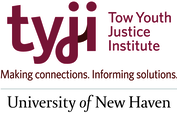Restorative justice embodies a set of principles and values that prioritize healing, reconciliation, and community engagement over punitive measures. Rooted in indigenous wisdom and practices, this approach seeks to honor the interconnectedness of all individuals within a community. Central to restorative justice is the belief that conflicts and harms are opportunities for growth and understanding, rather than occasions for punishment. It emphasizes dialogue, empathy, and the involvement of all stakeholders, fostering a sense of collective responsibility. Through inclusive and participatory processes, restorative justice aims to unite communities in celebration of shared values while addressing and resolving conflicts with a focus on reconciliation. By drawing on the wisdom of indigenous traditions, restorative justice not only provides a framework for accountability but also promotes the restoration of relationships and the well-being of the entire community.
